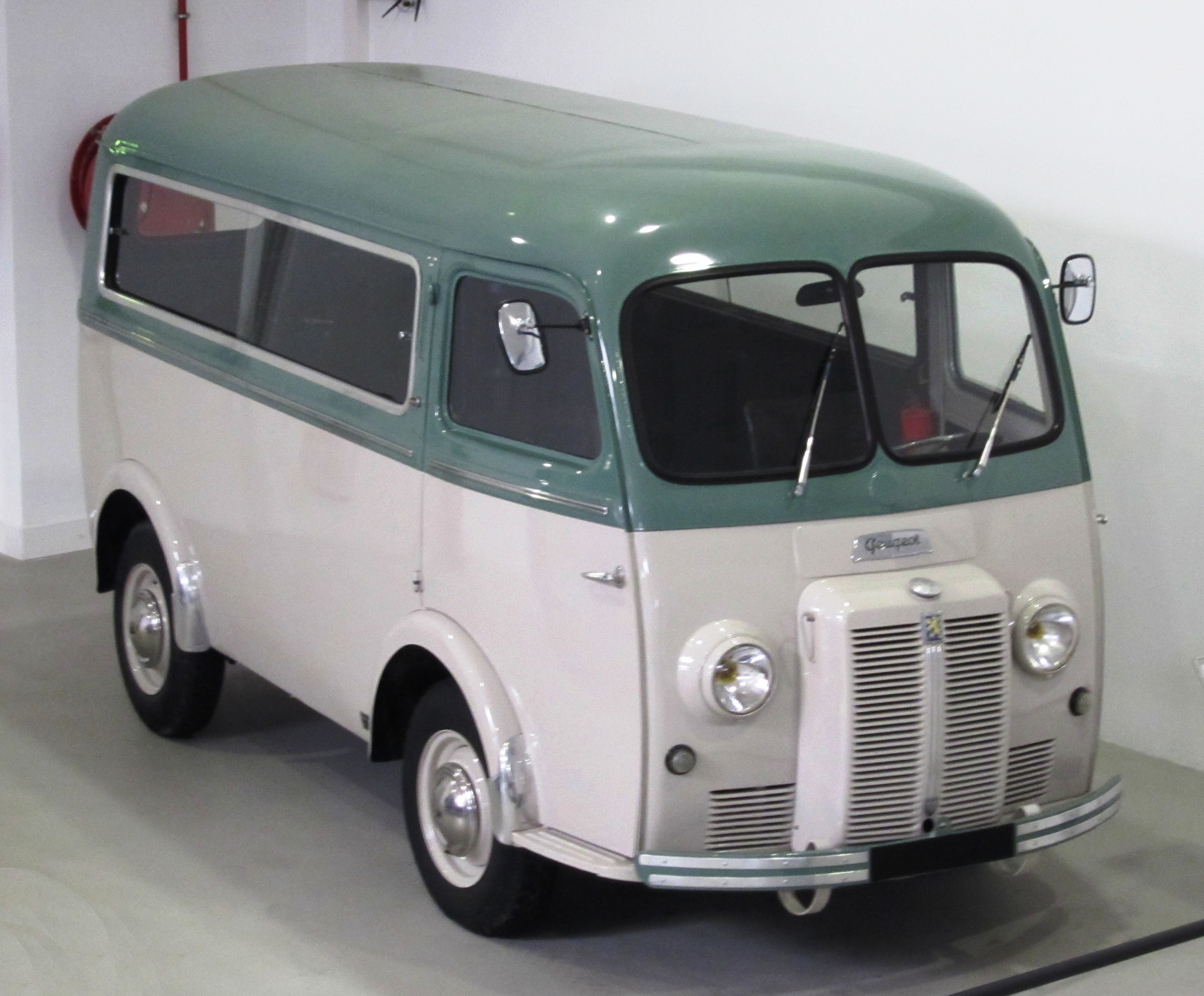

The Peugeot D4 is an iconic, forward-control light commercial panel van produced by Peugeot from 1950 to 1965. Known for its robust and practical design, the D4 originated from a Chenard-Walcker design, which Peugeot acquired, and was widely used across France as a versatile work vehicle, ambulance, and police van.
Overview and Reputation
The D4 (and its predecessor the D3) featured a distinctive, extended front end, which earned it the nickname "nez de cochon" ("pig nose") because the engine, adopted from Peugeot's passenger car range, required the radiator to stick out to fit. Despite this quirk, the van was valued for its front-wheel drive (FF) layout, which allowed for a low and flat load floor, maximizing cargo space. Its durable construction meant these vans were typically used by businesses and emergency services until they were fully worn out, making well-preserved examples rare today.
Noted Features and Uses
Versatility A range of factory and coach-built body types were available, including the minibus version used by French police and the post office, and specialist conversions like horse-boxes and ambulances.
Durability The D4 inherited reliable 4-cylinder engines from Peugeot's passenger cars like the 203 and 403, and was built with a self-supporting bodywork.
Innovation In 1959, the D4 became available with a diesel engine option, a major innovation for vans of its class at the time.
Successor Production of the D4 ended in 1965 to make way for the more modern and stylish Peugeot J7.